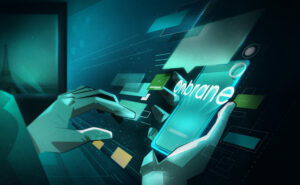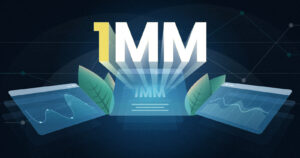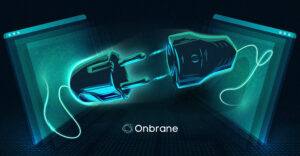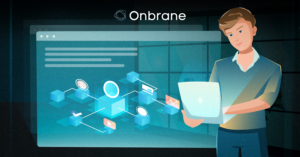The following story is based on actual events. All characters appearing in this work, except for the wanna-be-pianist, are fictitious. Any resemblance to a real person is purely coincidental.
Introduction
In 2020, when the French authority ordered the Covid lockdown, like most of you I presume, I asked myself, ‘now what?’ The only thing I knew for sure was that for the next few months, I was stuck indoors, with a lot of free time on my hands.
So, I went to my bucket list and started running down the lines:
‘Do something to help fight global warming’, that’s Onbrane, already on it! Next, ‘Swim with blue whales’, that’s not gonna happen in confinement.
Next, ‘Climb Mount Aconcagua’, that’s not gonna happen either. Next, ‘Learn to play piano’.
That’s a great idea!
It perfectly fit the situation. Since I had no music background whatsoever and was totally clueless about the topic, I went online to get started.
It was all so complicated, music theory, learning methods, chords, solfege, scales… I am a hands-on techie so I quickly decided to skip all that, to put my hands on a piano and get an app to help me learn.
So, step one, let’s buy a piano!
This is where the relevance with digitalization and more specifically the digitalization of the Primary Debt Market begins
The starting point
Buying a Piano – Classic versus Digital
Nothing can replace the beauty of a classic piano, nothing can replace its sound quality, the endless nuances, and no digital keyboard can feel the way a real keyboard feels.
Issuing debt product – Classic versus Digital
Nothing can replace the reactivity and efficiency of a phone call. Nothing can provide the flexibility of a manual process and nothing gets better results in a negotiation than direct human interactions.
The sticker shock!
Piano
The classic versus digital piano conversation was over almost as soon as it started.
“What do you mean a classic entry piano is $5,000?!”
And it does not stop here: a classic acoustic piano requires constant temperature, maintenance, regulation, tuning, voicing, and even occasional string replacement.
A digital piano requires to be plugged in, and that’s it for the next 50 years. My first google search had already killed my fantasy of feeling the action of felt-covered hammers hitting steel-wire strings.
Still, just in case, I did a second search – ‘Classic or digital piano, which one to buy?’. Ten minutes later, I was searching – ‘Best digital piano under $1,000’. Fifteen minutes after, I was on Amazon ordering my first digital piano.
It took less than 1 hour from my deciding to learn to play piano to my tracking the delivery process online – “your order has been fulfilled and will be delivered tomorrow before 11 AM’. The power of digitalization and platforms… just mind-boggling.
Debt Market
The sticker shock is not as obvious for carrying out debt issuances the classic way as it is for buying a piano. But make no mistake, it is not because you don’t see the high price tag, that it is not there.
Just as an appetizer, using Onbrane reduces the negotiation process by 50% and up, reduces administrative tasks, and reduces post-trade breaks and errors by close to 100%.
This is the magic of having all the market actors (issuers, intermediaries, and investors) on one platform using one unified process and sharing the same golden source of information.
And wait for the main course in a few minutes. But there is nothing surprising there, right? Digitalization makes everything more efficient, from highly repetitive tasks such as making payments to once-in-a-lifetime tasks such as ordering a piano – ‘Your order has shipped and is now on its way to you’.
The bottom line, if you think using Onbrane is more expensive, you are not doing the math right.
The immediate added value of digitalization
Piano
Day-2 of the confinement in Paris.
I woke up very excited to start my journey of becoming a pianist. My eyes barely opened; I went online to check the progress of my package – ‘Your order is out for delivery’.
I printed and signed a piece of paper provided by the French government allowing myself to go buy a baguette and a croissant.
After breakfast, I printed and signed another piece of paper also provided by the French government allowing myself to go for a run – the French do love cutting down trees to fulfill their passion for paperwork.
I got back from my run, took a shower, got dressed, and went online to get the delivery status – ‘Your order has arrived’. I opened the door; my piano was there.
As I was considering the power of digitalization that brought this piano to me so efficiently, I took the 2 pieces of paper provided by the French government ‘self-allowing myself’ to buy food and exercise, and threw them away.
What a contrast of modernity! What a contrast in life experience!
Day-34 of the confinement in Paris.
No, I was not a pianist yet; far far far from it. Playing piano is crazy hard. At first, all the keys looked the same to me; reading music sheets seemed impossible.
But I was on my way. I was practicing every day and I was already enjoying the benefits of having chosen to go digital.
And I was not the only one, my neighbors were also very happy I had chosen a digital piano. Why? Because, contrary to acoustic pianos, digital pianos come with a volume button – the confinement was hard enough on its own, listening to my cacophony would have probably pushed a few people over the edge.
Going digital also meant I could connect my piano to my computer and use an app to walk me through the learning process.
It turned out to be a lifesaver. I would not have made it without it. Another immediate added value to having gone digital was the ability to record and listen to my ‘progress’ – often depressing, but so important to improve.
And finally, my digital piano was making it fun by letting me change the sound from piano to synthesizer to organ.
Already, the immediate value proposition of a digital piano had killed any possibility to reconsider going the classic way. Once you go digital, you just don’t go back.
Debt Market
On day-34 of the confinement, a classic issuer Stephany, almost alone in her building, was calling a classic intermediary, Paul, almost alone in his building.
People engaging in debt issuance were among the very few in the finance industry to go to the office. This was simply because they lacked the technology to allow them to do their job remotely.
But let’s go back to Stephany and Paul:
‘Hello, it’s Stephanie, can I talk to Paul please’, ‘Sorry Stephanie, Paul is in the bathroom right now, I’ve just paged him, he will call you back in 5 minutes’.
Stephany, ‘Thank you for the information, transparency is also a core value for us, but tell Paul to take his time, I will call again later… or not’.
There is an immediate added value to going digital in the debt issuance business too.
On Onbrane, Stephanie would have contacted Paul in a few clicks. Paul would have been notified on his cell phone; he would have redirected Stephanie’s request to Christine.
On Onbrane, the classic issuer, on top of benefiting from a reduction of the negotiation process by 50% and up, and a reduction in administrative tasks and post-trade breaks and errors by close to 100%, would not have suffered from excess transparency.
On Onbrane, the classic intermediary, on top of benefiting from a reduction of the negotiation process by 50% and up, and a reduction in administrative tasks and post-trade breaks and errors by close to 100%, would not have missed a transaction.
And, on Onbrane they would have both benefited from Onbrane’s virtual office, allowing them to work remotely, just like they do at their workplace, and allowing them to have live information from the marketplace, thanks to Onbrane’s powerful data module.
The full power of the digital world
Piano
We are now almost 3 years later. The confinement is long gone. Yes, I am still playing piano and I still have a long way to go before calling myself a pianist.
This past Christmas, I treated myself and upgraded my old digital piano with a new higher-end model. The sound is exceptional, the keyboard feel is a dream and the wealth of functionality is just incredible.
On top of being a very good piano, it’s a recording studio. A good musician can record a track with a piano sound, record another track with a synthesizer sound, another one with a guitar sound, add a drum, add a voice, mix it all, and have a song good enough to put on Spotify….
Wow, just wow, and it all started with replacing the action of hitting a key to generate acoustic sound, with the action of hitting a key to generate digital data.
I still love the idea of a classical piano. There is probably still a niche market for concert halls and affluent people. But let’s face it, acoustic pianos can’t compete against digital pianos, not even close.
Digital pianos are increasingly capable of sounding and feeling like acoustic pianos for less money and less hassle. And additionally, by leveraging the digital world, they offer just so so so much more.
You need to experience it to believe it.
Debt Market
Onto the main course now.
I am seeing the same digitalization process for the primary debt market with, over time, Onbrane bringing the full power of the digital world to the Primary Debt Market.
We call it the ‘fabric’ ergo our name, Onbrane – Primary Debt Market Fabric.
Imagine, every day, private, public, and financial organizations looking for financing, naturally logging into Onbrane to express their needs.
There, dealers, brokers, and service providers (lawyers, advisors, consultants, rating agencies, IPAs, and clearers) are awaiting them and even advertising to them.
Also, investors, asset managers, and fund managers start their day by connecting to Onbrane, and look at the custom dashboard that lets them know, based on their own criteria, what is on the market but also what is coming to the market – they can set up alerts not to miss any investment opportunities.
Onbrane then facilitates all their interactions, documentation, and data exchanges.
Onbrane also takes care of the digitalization of all their processes and automatically sends information to other specialized systems in the ecosystem (FX, TMS/OMS systems, Secondary Market, Clearing and Settlement…) through APIs.
Finally, Onbrane provides them with all the data and analytics they need to run and monitor their business, and, increasingly, AI is providing each participant with advice so they are even more efficient.
Onbrane will have become the ‘Primary Debt Market Fabric’ – a comprehensive ecosystem financing the global economy.
Thanks to Onbrane and the full power of the digital world, many more companies will have access to the capital market.
These issuers will then have more financing options at their disposal and will have the tools and data to navigate their debt issuances.
Thanks to Onbrane and the full power of the digital world, intermediaries will then have the ability to scale up their business and will have the opportunity to do so by servicing a wave of new issuers entering the capital markets, will be able to better assist their existing clients by focusing on advisory rather than spending time on administrative tasks and will be able to seamlessly distribute newly created debt product to investors.
Thanks to Onbrane and the full power of the digital world, investors will then have a comprehensive view of the existing and coming investment opportunities available on the market, will have powerful search tools to help them select investments that fit their requirements and will be able to acquire them efficiently.
And it all started with replacing the action of exchanging voice information by phone with the action of exchanging digital information by computers.
Conclusion
The confinement turned out to be an opportunity for me to learn something new, to accomplish a life dream, and to better understand the power of the digital world.
After deciding to learn piano, I felt the nostalgic appeal of the classic way. Eventually, I went full-digital with a digital piano, an app to guide me through the learning process, and YouTube as my many-face-teacher.
Probably because I had no music background and because it all happened relatively quickly, the power of digitalization hit me harder.
Think about how incredible this is: Today, it is possible for almost anybody with a very reasonable budget, regardless of where that person lives to learn piano alone, to start making and recording music, and even distribute it worldwide, and why not become a star?
All that is thanks to the power of the digital world.
I personally believe that nothing is out of reach for digitalization. The first wave of digitalization built the foundation of a digital future.
The advent of the internet connected us all, allowing the emergence of platforms. These platforms revolutionized industries one by one, changing everything.
Now we see powerful AIs doing tasks we thought only humans could do. Today they can drive cars, translate any language, and even talk to us.
We also see the rise of cryptocurrencies and blockchain technology. This new wave of disruptive technology will compete with existing currencies, transform the finance industry, and will allow us to rethink the way we govern ourselves.
With everything in play and the pace of change accelerating, it is not only normal but necessary to take a step back and consider where all this is taking us.
We also need to consider the damage our current way of living is causing to our planet. No, going carbon-neutral is not optional.
Yes, the digital transformation of our societies, our lives, and our jobs can be uncomfortable and sometimes even frightening.
But it is also necessary to address the challenges facing us and it is an opportunity to do better.
The primary debt market is critical in this process as it finances the economy and therefore its transformation.
It must be the mission of the primary debt market actors to help build a better more sustainable primary debt market industry to help build better more sustainable ways of living for humanity… and it all starts by hanging up that phone to go digital.
This is the first step toward a better world.
So, hang up this phone, join Onbrane and choose to follow the white rabbit … Knock knock!

